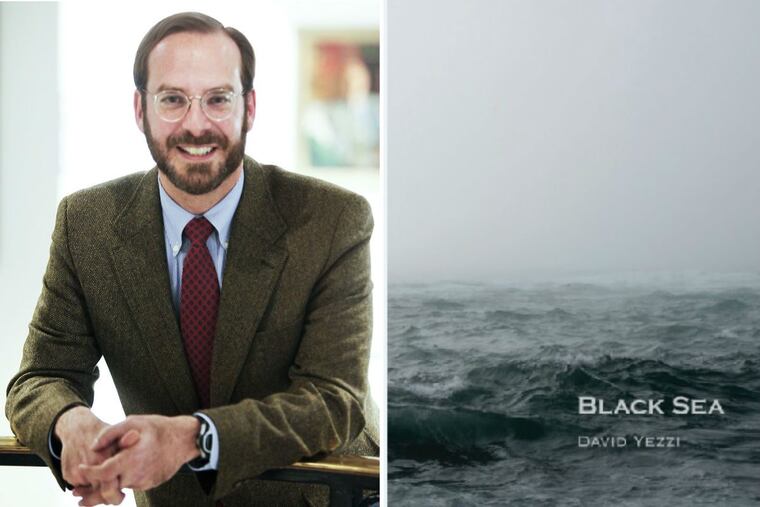David Yezzi's 'Black Sea': Poems to read, poems for right now
If you read only one book of poetry this year, make it "Black Sea" by David Yezzi. It's subtle and sophisticated, but as contemporary as the latest tweet.

Black Sea
By David Yezzi
Carnegie Mellon University Press. 72 pp. $15.95
Reviewed by Frank Wilson
David Yezzi's poetry is contemporary in a subtle way, its sophisticated rhymes and stanzas nicely seasoned with terms and references as up to date as the next moment's tweet. There's the mom in the supermarket parking lot who "pulls her child close and screams / something PG-13." Then there's the speaker in "The Consolations" who tells us how he "got to love telenovelas" and their "desperate lovers":
I feel their hurt, its charge, in every cell—
A tongue-tip on a 9-volt Duracell.
The effect is to remind us that, however hip and "ringed by spice routes of connectivity" ("Living Room") we may be these days, perennial themes shape and color life. The speaker in "The Chain" tells us that no sooner does that mom lose her temper than "Two cars down, / a guy, foot-lit / by tail lights, starts tsking as he pops his trunk, / saying good and loud, for me to hear, / 'That's no way to treat your kid.' "
This bothers the speaker. All the way home. He wonders "who's more insane? / He's sure it's her; I choose / him."
"And me?" he wonders. "Tonight my son / actually flinches as he turns / the corner, still stinging from my swat, / with his Nerf gun / cocked. … Down his sights, he / squints and aims at me."
Yezzi is very good at conflicting emotions. "My emerald legion," the speaker in "Weeds" begins, "how tall you have grown … With what supernatural speed …." He blames himself: "… I allowed it. My cool inattention / found good reasons to look the other way, / since all that grows is good, or so I thought." He quotes Milton's Satan: "How soon would height recall high thoughts," but admits "if I uproot you now, how I would miss you." In the end, he cannot quite justify his neglect, if only because he "can't quite remember what it felt like … without the clogging stems elbowing out / what I meant when I first planted here …."
This collection is divided into four suites of poems. The second, the book's title sequence, begins with "Tomis," the name of the town on the Black Sea where the poet Ovid was banished by the Emperor Augustus. And indeed there is a sense of exile, for the speaker tells us that "over water on this / new shore, / I look out on / a blank sky." In the next poem, "White Jasmine," the speaker marvels at "How easily detail is wrung from the rag of the past," while the next, "False Holly," tells of "falsehood / flourishing." Small wonder, three poems later, in "Truepenny" (meaning someone you can trust), the speaker confides:
I am an echo of the tune I was,
My voice still going on inside,
A ghost crooning to one who's died.
These "Black Sea" poems are the hurting heart at the center of this collection.
If they are the opening statements of a symphony, the third suite resembles a scherzo, what with "The Double Deuce," a wry recounting of the 1989 Patrick Swayze film Road House, then the strange encounter that takes place in "Mouse Drawer," and the odd prayer that is "Sourdough."
In the final suite, themes are reprised with a measure of resolution. In "Let," the speaker is playing tennis with his daughter:
Across the net,
she wilts and falls
behind, so I let
a few balls
slide by …
"Is this / letting her win / a Judas kiss," he wonders.
In "Low Pressure," the speaker is teaching his young son to sail:
He's learned how to read the wind
but doesn't know what wind can do
without warning and heedlessly.
He has an ease
that makes my caution cowardly.
A lot of territory, both within and without, is traversed in this little volume, but if you read only one book of poetry this year, make it this one.
Frank Wilson is a retired Inquirer book editor. Visit his blog Books, Inq. — The Epilogue. Email him at PresterFrank@gmail.com.